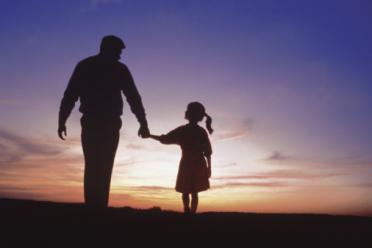Every week, parshaoftheweek.com brings you a rich selection of material on parshat hashavua, the weekly portion traditionally read in synagogues all over the world. Using both classic and contemporary material, we take a look at these portions in a fresh way, relating them to both ancient Jewish concerns as well as cutting-edge modern issues and topics. We also bring you material on the Jewish holidays, as well as insights into life cycle rituals and events...
Parshat Bo takes us to a climax of the Exodus story: the last three of the ten plagues, and the actual leaving of Egypt by the Nation of Israel. The Parsha begins with God saying to Moshe בא אל פרעה - "Come to Pharaoh, for I have hardened his heart, and the hearts of his servants, so that I may place my signs among them. And so that you can tell, into the ears of your son, and the son of your son, that which I have done to Egypt, and my signs that I have placed among them, and you will know that I am the Lord."
There are a few difficulties in this passage. One is the use of the singular "and so that you can tell, into the ears of your son and the son of your son”, rather than the plural sons or children that we would have expected. After all, that is the mitzvah – to teach the Exodus story to all our children, not to just relate it to one child. Another problem is the placement of the phrase “and you will know that I am the Lord”. As it stands, it appears at the end of the section, after the commandment to retell the Exodus story to “your son”. Surely, one would have expected to see it before that passage, right after “so that I may place my signs among them’ – it would surely be at that stage, upon seeing the miraculous signs and wonders of the Exodus, that the Israelites would have believed in God, would have known that He is, in fact, the Lord. Why is this phrase placed after the discussion of telling the story to the son, which, obviously, will come much later, well after the Exodus is over and its lessons have been assimilated by the participants?
The first difficulty, the use of the singular “son”, rather than the more obvious, and actually halachically correct “children”, may have something profound to tell us about how we educate, and relate to, our children. We have to do it one at a time, individually. In spite of what the song says, you can not “teach your children.” Each one needs to hear, and understand, what it is we want to transmit to them, what we have to share with them, individually, in his or her own way, on his or her own terms. The unit of relationship between parent and child is the individual.
Our second problem, that the lesson of the miracles in Egypt and the entire Exodus story - that we “know I am the Lord” – is placed after the chronologically later notion of recounting the story, may be telling us this: the most profound, the deepest understanding of God’s presence in the world, is achieved when we are able to share that understanding. A truth, a deeply held belief, is most fully expressed in the telling of it. Seeing and experiencing the miracles was surely a transformative experience for the Jewish people. The deepest expression of that experience, however, is to be found in retelling it, moving it forward, to those closest to us, to those about whom we care the most: our children. An experience that has truly moved us, a belief we have truly come to, a faith we have truly achieved, is most fully felt and expressed in its being passed on, retold, shared, given wings, to live in the hearts of “your son, and the son of your son.” Once we have done that, we can then say that we know that God is, in fact, the Lord.
Shabbat Shalom,
Rabbi Shimon Felix



Get inspired by Bo Divrei Torah from previous years